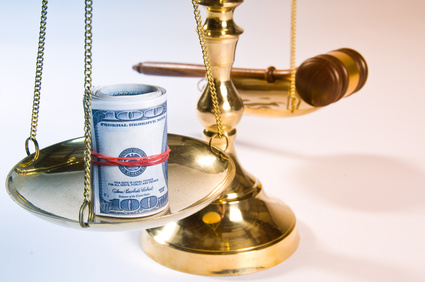
The general rule in California is that each party bears its own attorney’s fees. There are exceptions to this general rule. One exception exists when a contract contains an attorney’s fee clause. If a contract provides that the prevailing party will recover its attorney’s fees and costs, generally that provision is enforceable, assuming that the matter is litigated to judgment.
Landlords who want to recover attorney’s fees from defaulting tenants should ensure that their rental agreement or lease contains an attorney’s fee clause. Below is an example of a simple attorney’s fee clause.
In any legal action brought by either party to enforce the terms of this agreement or relating to the Premises, whether based in contract or in tort, the prevailing party will be entitled to reasonable attorney’s fees, costs, and expenses incurred in connection with that action.
Terminology should be made consistent with the rental agreement or lease.
California Civil Code §1717(a) makes attorney fee provisions reciprocal. Attorney’s fees will be provided to the prevailing party regardless of language limiting the right to one party. This means that if the lease contains an attorney’s fee clause, a prevailing tenant will be awarded attorney’s fees even if the lease only discusses an award of attorney’s fees to the landlord.
While in theory the rights of the tenant and landlord to recover attorney’s fees are reciprocal and balanced, in reality landlords typically have more assets than tenants; an award against a landlord is usually far more collectable than an award against a tenant. An attorney’s fee award against a landlord is probably fully recoverable, while a large attorney’s fee award against a tenant will probably not be fully collectable. Keeping this in mind, some landlords choose not to have an attorney provision in their leases. Others impose attorney fee caps designed to prevent a tenant’s attorney from recovering large amounts under Civil Code §1717 if a tenant prevails in a lawsuit. Determining whether an attorney’s fees cap should be imposed is a risk management/business decision that will require an analysis of the types of litigation in which a landlord is involved, the likely amount of attorney’s fees awarded in each kind of case, and the finances of the parties involved. For example, if a landlord’s tenants are primarily low income, and would be unable to pay large attorney fee awards, and 95% of the landlord’s litigation matters are unlawful detainer actions, and the attorney’s fees awarded in those range from 0 to $2500, but only a very small fraction are more than $700, the landlord may want to cap the fees at $700 (or even increase the cap to $1000 to cover increasing attorney fee awards.)
While an attorney’s fee cap should be considered in all cases, it is particularly important in areas where there are defense attorneys available to tenants at no charge to the tenant (such as the Eviction Defense Center in Oakland, BASTA, Inc. in Los Angeles, and Legal Aid attorneys in San Diego funded by the Sargent Shriver Civil Counsel Act, AB 590).
A landlord that would like to impose a maximum amount of recoverable attorney’s fees can change the attorney’s fee provision to read:
In any legal action brought by either party to enforce the terms of this agreement or relating to the Premises, whether based in contract or in tort, the prevailing party will be entitled to reasonable attorney’s fees (not to exceed $_____), costs, and expenses incurred in connection with that action.
An attorney’s fee cap will not limit an attorney’s fee award in all cases. It will only limit an attorney’s fee award based on the contract awarded under Civil Code §1717. There are several other state and federal laws that allow a tenant to recover attorney’s fees against landlords. The attorney’s fee cap would not limit an award of attorney’s fees granted under the other statutes.
Please contact Neighborhood Property Management, a Fresno and Clovis based residential property management company that can discuss this and other strategies with you to mitigate your liability and increase profitability. Contact us today at: 559-270-6776 or [email protected].

 RSS Feed
RSS Feed